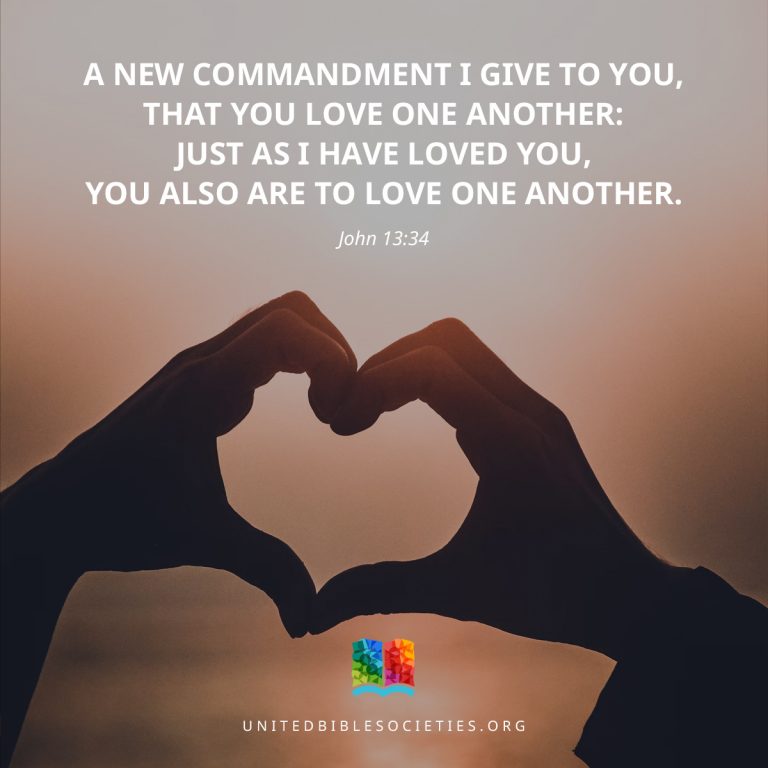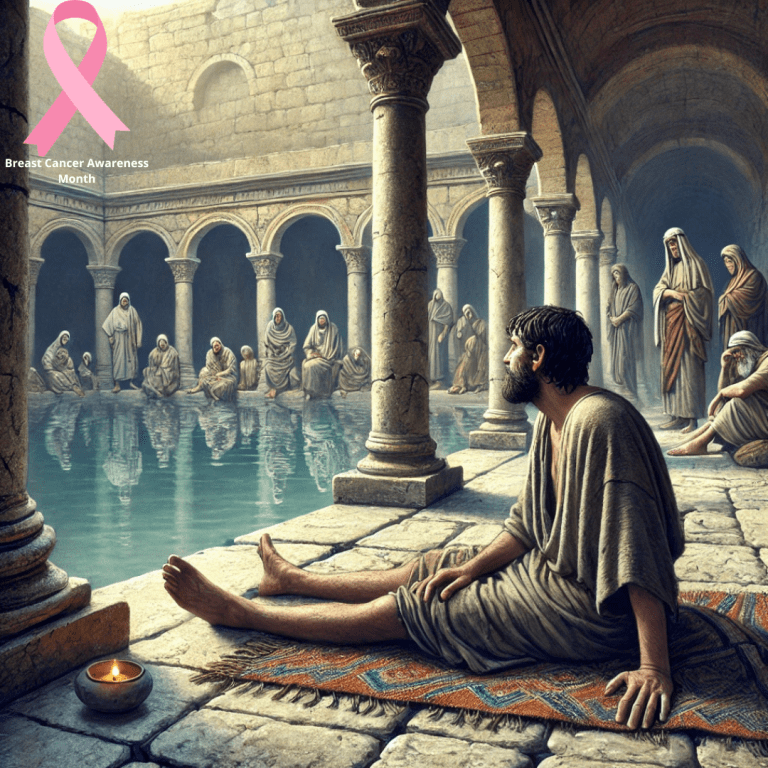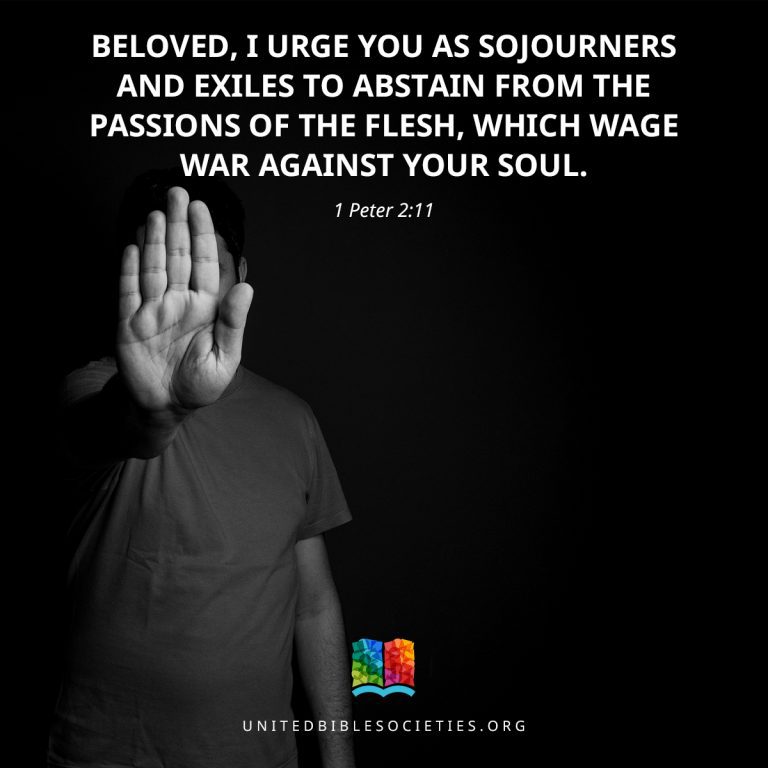Ŋiɽaŋal ŋǝthi ŋimiitha.
1 Kwon-kwon nǝ Ŋiɽaŋal naani, nǝ Ŋiɽaŋal nanni Allah-yi, nǝ Ŋiɽaŋal oro Allah. 2 Nǝr nanni kwon-kwon Allah-yi. 3 Nǝ kwomne tatap daɽimanni ŋunduŋw-ŋgi, nǝ kwomne ere kweere mac kwɔdaɽiminna waɽeny kwiira ŋunduŋw-nǝ. 4 Nǝ ŋimiitha nanni duŋgwun-nǝ. Nǝ ŋimiitha oro fɔɔri kwǝthi lizi. 5 Nǝ fɔɔri erṯelɔ kirim-nǝ, mindaŋ ǝṯi kirim ere rii kithaay mac. 6 Nǝ kwɔr naani kwette kwɔɔsa Allah kwǝni Yuhanna. 7 Nɔŋw iila ethi andaci lizi ŋiɽaŋali ŋǝthi fɔɔri, mindaŋ mǝr neŋne tatap ŋiɽaŋali mindaŋ ethisi ǝmmini. 8 Nɔŋweere oro ŋundu fɔɔri mac, laakin nɔŋwiila ethisi andasi ŋǝthi fɔɔri. 9 Nɔŋw oro fɔɔri kwir rerrem, ŋgwa kwɔmǝ irṯaci lizi-lɔ tatap ki-ṯurmun-nǝ. 10 Nɔŋw nanni ki-ṯurmun-nǝ, nǝ turmun kettene ŋunduŋw-ŋgi, laakin nǝ ṯuŋmun ere elŋe ŋunduŋw mac. 11 Nɔŋw iilicǝ bǝlǝḏǝ kwuuŋwun, laakin nǝ lizi ere ǝnyji ki-lɔɔɽɔ-na mac. 12 Laakin kila limǝ ǝnyji ŋunduŋw ki-lɔɔɽɔ-na, limǝ ǝmminici yiriny yuuŋwun, nɔŋwsi inḏǝthǝ ŋɔma ethoro nyɔr nyǝthi Allah. 13 Kila lilŋinna ŋelŋe ŋiti ŋir ŋǝthi ŋin mac, wala ethoro ŋǝthi aŋna mac wala ethoro ŋǝthi ŋizigwunǝŋ, laakin nǝroro ŋǝthi Allah.




14 Nǝ ŋiɽaŋal rothonne kwizigwunǝŋ, nǝr urǝnni ne@ma-na, nǝ ŋa ŋir rerrem nanni dǝŋgǝr-nǝ. Nǝr ese ŋinithi ŋuuŋun, ŋa ŋir ŋinith ŋǝthi Tɔr tɔtɔpɔṯ ŋaava-ŋwsi naanɔ-gwɔ Papa. 15 Nǝsi Yuhanna andasi ŋǝni ŋundu, nɔŋw ɔvɔna nɔŋwaarɔŋw, “Kwindǝr-ṯǝ ŋgwɔ kwandisany-gi naariny-ŋwɔ, ‘Ŋgwa kwette kwɔkwaathathi nyii, laakin nɔŋw tamthɔ nyuŋw-lǝ kaka ninannɔ-ŋgwɔ kerreny tuk niti nilŋithir-nyii kinnǝ mac’.” 16 Nǝ ki-ṯuurǝnnǝnǝ ṯuuŋwun ṯǝthi ne@ma, nɔŋwɔccǝ nyuŋwsi baarika tatap, nɔŋw kikiɽǝci nyuŋwsi barka dɔṯṯɔk. 17 Nǝ Sherii@a ǝvinǝ Muusǝ-ŋgi, laakin ŋa ŋir rerrem ne@ma-gi nǝr iila Yǝcu-ŋgi kwǝni Kwɔrɔstɔ. 18 Nɔŋweere kweere ḏuṯ kwiisa Allah. Nǝ Tɔr oro tɔtɔpɔt dak, tinaanɔ Papa-ŋwɔ ki-ṯuɽumǝ, tindǝr-ṯǝ timǝ ruwǝzi ŋunduŋw-lɔ.
Ŋiɽaŋal ŋǝthi Yuhanna kwǝni Ma@maḏaan.
(Maṯṯa 3:1-12Mɔrgus 1:1-8Luuga 3:1-18)19 Nǝ Yahuuḏ yǝthi sɔlṯa yinaanɔ Urshaliim ɔɔsi kahana koko Laawiiyyiin-ŋǝli naanɔ-gwɔ Yuhanna ethi uṯicǝlɔ ethǝccǝŋw, “A kwir ṯaŋ?” 20 Nǝ Yuhanna ere derne mac ethisi ǝŋnici, laakin nɔŋwsi andicalɔ pɔr-pɔr nɔŋwsǝccǝŋw, “Nyiiti kwɔrɔ Kwɔrɔstɔ mac.” 21 Nǝr uṯicǝlɔ nǝrǝccǝŋw, “E-ta nimǝni ǝyǝ? A kwɔrɔ kwǝni Iliiyyǝ?” Nɔŋwsi ǝŋnici nɔŋwsǝccǝŋw, “Bǝri nyiiti kwɔrɔ mac.” Nǝŋ uṯicǝlɔ nǝŋǝccǝŋw, “A kwir kwɔrɔ Kwiɽii-a?” Nɔŋwsi ǝŋnici nɔŋwsǝccǝŋw, “Bǝri.” 22 Nǝrǝccǝŋw, “E-ta ati kwǝnyji andaci-pa, a kwɔrɔ kwǝndu? Mindaŋ mǝnyii-ŋi aaɽi ŋette naanɔ-ŋwɔ kila lɔɔsa-nyji. E-ta nimaari ŋa tha ki-ɽogɽo-na rɔɔŋwa?” 23 Nǝsi Yuhanna ǝŋnici kandisa-gi kǝthi Kwiɽii kwǝni Isha@ya kǝniŋw, “Nyii kwir ṯogɽo ṯǝthi kwette kwurnɔnǝ ki-sahraa-na ṯaarɔŋw, ‘Rillicǝr Kweelenyi taay-lɔ ŋwɔthi elela!’ ”
24 Nǝ kila lɔɔsasi Lifirriisiiyyiin, 25 uṯici Yuhanna-ŋw-lǝ nɔrǝccǝŋw, “Meere oro Kwɔrɔstɔ mac wala Iliiyyǝ wala kwiɽii, e-ta a kwotho kwǝṯi aari @ammiḏa-pa?”
26 Nǝsi Yuhanna ǝŋnici nɔŋwsǝccǝŋw, “Nyii kwǝti fɔɔri @ammiḏa ŋaaw-ŋi, laakin ŋgwa kwette kwirlɔ daŋgal-na kwiti kwilŋithiŋǝ mac. 27 Ŋgwa kwɔrɔɔmɔ-nyii, laakin ninyeere ɔvthanni mac ethi kǝdici yithwǝnu yuuŋwun.”
28 Nǝr ǝrrini ŋɔ tatap Beiṯ-@aniya sherig kwǝthi Bahar kwǝni Urḏɔn, kazir wǝṯi-gwɔ Yuhanna aari @ammiḏa.
Tirany tǝthi Allah.
29 Mǝ ŋɔrpɔ-ŋgwa oro ta nǝ Yuhanna ese Yǝcu-ŋw kwiilathɔ naana, mindaŋ nɔŋw aarɔŋw, “Iisar-ṯi tiranyɔ tǝthi Allah, tinḏi ethi dimmǝthǝ ṯurmunǝ ŋikiyaŋi! 30 Kwundǝr-ṯǝ ŋgwa kwandica-ŋǝsi-gi kwǝccǝ-ŋǝsi-gi ŋwɔ, ‘Ŋgwa kwette kwinḏi-nyii ethi rɔɔma, laakin nɔŋw ṯamthɔ nyuŋwɔ-lǝ kaka naanɔ-ŋgwɔ kerreny tuk kwon-kwon niti nilŋithir-nyii kinnǝ mac’. 31 Ninyeere elŋe ŋundu-ŋw mac, laakin nǝnyii iila ethi aari @ammiḏa ŋaaw-ŋi mindaŋ mǝ lizi lǝthi Israa-iil elŋe ŋunduŋw.”
32 Nǝŋi Yuhanna ɔnḏi kiyǝnǝ nɔŋwaarɔŋw, “Nyii kwiisa Ṯigɽimǝ ṯidappɔ ki-leere-na ṯir kaka kɔɔthɔr nɔŋw aaw duŋgwun-lǝ. 33 Ninyeere elŋe ŋgwa mac, laakin Allah wɔɔsa-nyii ethi aari @ammiḏa ŋaaw-ŋi nɔŋwɔccǝ nyuŋwɔŋw, ‘A kweese Ṯigɽimǝ ṯidappɔ mindaŋ ŋwɔ aaw duŋgwun-lǝ; kwindǝr-ṯǝ kwinḏisi ethisi ǝccǝ @ammiḏa Ṯigɽim-ṯhi Ṯirllinǝlɔ ter’. 34 Nǝ Yuhanna aarɔŋw, Kwɔmǝ-nyii ese mindaŋ naŋsi-ŋi ɔnḏici kiyǝnǝ ŋǝni ŋundu ethaarɔŋw kwir Tɔr tǝthi Allah.”
Ṯalaamiiz ṯiŋna ṯǝthi Yǝcu.
35 Mǝ ŋɔrpɔ-ŋgwa oro nǝ Yuhanna rilli kwokwony ṯalaamiz-thi ṯuuŋwun ṯir ṯiɽǝn, 36 mindaŋ nɔŋw ese Yǝcu-ŋw kwirǝrǝlɔ nɔŋwaarɔŋw, “Iisar-ṯi Tiranyɔ ṯǝthi Allah!” 37 Nǝ ṯalaamiiz kitha ṯir ṯiɽǝn niŋnaci ŋunduŋw mindaŋ nǝr rɔɔmi Yǝcu-ŋw. 38 Mǝ Yǝcu ɔrllalɔ, nɔŋwseese lɔkwaathathɔ, mindaŋ nɔŋwsǝccǝŋw, “Ŋaaŋa linaŋna aatha-lɔ?” Nǝr ǝŋnici nǝraccǝŋw, “Rǝbbi, aŋgwana kwɔnannɔ ṯaka?” Rǝbbi, ŋǝniŋw yaa Mɔ@allim. 39 Nɔŋwsi ǝŋnici nɔŋwsǝccǝŋw, “Ilarimba ese.” Nǝr iila nǝr ese ǝzir wɔnannɔ-ŋgwɔ, mindaŋ nǝr-li naani laamin kila. Kaka nɔr-gwɔ saa@ kwaɽiŋan kwǝthi kirakalɔŋw. 40 Nǝ kwette kwǝthi kila lir ndǝn liniŋnaca Yuhanna-ŋwɔ nandisaŋw mindaŋ nǝr kwaathitha, nɔŋwɔni Anḏraaws, kwir eŋgen kwǝthi Sim@aan Bɔṯrɔs-ŋǝ. 41 Nɔŋw kaṯṯasi eŋgen ker-kerreny kwǝni Sim@aan, nɔŋwɔccǝŋw, “Nyiiŋǝ limǝ kaṯṯisa Masiiyya-ŋw”, yǝniŋw Kwɔrɔstɔ. 42 Nɔŋw mɔlca Yǝcu-ŋw. Nǝ Yǝcu ecce tok-tok mindaŋ nɔŋwɔccǝŋw, “A kwǝni Sim@aan kwir tɔr tǝthi Yuhanna, lǝŋǝ ǝnyjici yiriny yǝniŋw Kayfa”, yǝni Bɔṯrɔs:, ya Liiɽi.
Yǝcu mɔŋgwɔ ɔrnɔṯi Fiilibbus-ŋwɔsi Nathnaa-iil-gi.
43 Mǝ ŋɔrpɔ-ŋgwɔ oro nǝ Yǝcu kittatha etheele Jǝliil. Nɔŋw kaṯṯasi Fiilibbus-ŋwɔ mindaŋ nɔŋwɔccǝŋw, “Kwaathitha-nyii.” 44 Fiilibbus tǝ nɔŋworo kwǝthi Beiṯ-sayḏa-ŋwɔ kwir mǝḏiinǝ kwǝthi Anḏraaws-ŋǝ Bɔṯrɔs-gi, 45 Nǝ Fiilibbus kaṯṯasi Naṯhnaa-iil-ŋwɔ nɔŋwɔccǝŋw, “Kwɔmǝ-nyii kaṯṯisa-ŋgwa kwuluuthu Muusǝ Kiṯaab-na kǝthi Sherii@a nǝ kwuluuthu liɽii tok. Ŋgwa kwǝni Yǝcu kwir tɔr tǝthi Yuusuf kwǝthi Naasira-ŋw.”
46 Nǝ Nathnaa-iil uṯicǝlɔ nɔŋwɔccǝŋw, “Kwomne kweere kwǝthi ŋɔma ethiila Naasira-ŋgi kwisaawa?” Nǝ Fiilibbus ǝŋnici nɔŋwɔccǝŋw, “Ilamba ese.”
47 Mǝ Yǝcu ese Nathnaa-iil-ŋwɔ kwiilathɔ naana, nɔŋw-sandasi ŋǝni ŋundu nɔŋwaarɔŋw, “Kwisraa-iil kwir maṯa-ŋgwɔ rerrem kwiti kwǝthi ŋarratha-na ŋeere mac!”
48 Nǝ Nathnaa-iil uṯicǝlɔ nɔŋwɔccǝŋw, “A kwilŋithi-nyii aŋgwɔrɔ?”
Nǝ Yǝcu ǝŋnici nɔŋwɔccǝŋw, “Nyii kwiisaŋa kwɔɔtha kuṯṯu niti nɔrnɔṯɔ-ŋa Fiilibbus kinnǝ mac.”
49 Nǝ Nathnaa-iil ǝŋnici nɔŋwɔccǝŋw, “Yaa Mɔ@allim a kwir-mi Tɔr tǝthi Allah! A kwɔrɔ Mǝlik kwǝthi Israa-iil!”
50 Nǝ Yǝcu ǝŋnici nɔŋwɔccǝŋw, “A kwɔmǝ-nyii ǝmminici kaka nǝccǝŋǝ-gwɔŋw nyii kwiisa-ŋa kwɔɔtha kuṯṯu-a? Ŋǝsi ese ŋɔppa-ŋɔppa ŋithǝmthisi-lǝ ŋɔ!” 51 E-ta nɔŋwsǝccǝŋw, “Nyii kwǝccǝ-ŋǝsi-mǝ ŋwɔ rerrem, ŋaagŋ leese leereya likiṯṯinǝ mindaŋ a limeleka lǝṯhi Allah lanḏathila lidǝllithu nǝ lɔɽathalɔ ki Tɔr-la tǝthi Kwizigwunǝŋ.”
The Word of Life
1 In the beginning the Word already existed; the Word was with God, and the Word was God. 2 From the very beginning the Word was with God. 3 Through him God made all things; not one thing in all creation was made without him. 4 The Word was the source of life, and this life brought light to people. 5 The light shines in the darkness, and the darkness has never put it out.
6 God sent his messenger, a man named John, 7 who came to tell people about the light, so that all should hear the message and believe. 8 He himself was not the light; he came to tell about the light. 9 This was the real light—the light that comes into the world and shines on all people.
10 The Word was in the world, and though God made the world through him, yet the world did not recognize him. 11 He came to his own country, but his own people did not receive him. 12 Some, however, did receive him and believed in him; so he gave them the right to become God's children. 13 They did not become God's children by natural means, that is, by being born as the children of a human father; God himself was their Father.
14 The Word became a human being and, full of grace and truth, lived among us. We saw his glory, the glory which he received as the Father's only Son.
15 John spoke about him. He cried out, “This is the one I was talking about when I said, ‘He comes after me, but he is greater than I am, because he existed before I was born.’”
16 Out of the fullness of his grace he has blessed us all, giving us one blessing after another. 17 God gave the Law through Moses, but grace and truth came through Jesus Christ. 18 No one has ever seen God. The only Son, who is the same as God and is at the Father's side, he has made him known.
John the Baptist's Message
(Matthew 3.1-12Mark 1.1-8Luke 3.1-18)19 The Jewish authorities in Jerusalem sent some priests and Levites to John to ask him, “Who are you?”
20 John did not refuse to answer, but spoke out openly and clearly, saying: “I am not the Messiah.”
21 “Who are you, then?” they asked. “Are you Elijah?”
“No, I am not,” John answered.
“Are you the Prophet?” they asked.
“No,” he replied.
22 “Then tell us who you are,” they said. “We have to take an answer back to those who sent us. What do you say about yourself?”
23 John answered by quoting the prophet Isaiah:
“I am ‘the voice of someone shouting in the desert:
Make a straight path for the Lord to travel!’”
24 The messengers, who had been sent by the Pharisees, 25 then asked John, “If you are not the Messiah nor Elijah nor the Prophet, why do you baptize?”
26 John answered, “I baptize with water, but among you stands the one you do not know. 27 He is coming after me, but I am not good enough even to untie his sandals.”
28 All this happened in Bethany on the east side of the Jordan River, where John was baptizing.
The Lamb of God
29 The next day John saw Jesus coming to him, and said, “There is the Lamb of God, who takes away the sin of the world! 30 This is the one I was talking about when I said, ‘A man is coming after me, but he is greater than I am, because he existed before I was born.’ 31 I did not know who he would be, but I came baptizing with water in order to make him known to the people of Israel.”
32 And John gave this testimony: “I saw the Spirit come down like a dove from heaven and stay on him. 33 I still did not know that he was the one, but God, who sent me to baptize with water, had said to me, ‘You will see the Spirit come down and stay on a man; he is the one who baptizes with the Holy Spirit.’ 34 I have seen it,” said John, “and I tell you that he is the Son of God.”
The First Disciples of Jesus
35 The next day John was standing there again with two of his disciples, 36 when he saw Jesus walking by. “There is the Lamb of God!” he said.
37 The two disciples heard him say this and went with Jesus. 38 Jesus turned, saw them following him, and asked, “What are you looking for?”
They answered, “Where do you live, Rabbi?” (This word means “Teacher.”)
39 “Come and see,” he answered. (It was then about four o'clock in the afternoon.) So they went with him and saw where he lived, and spent the rest of that day with him.
40 One of them was Andrew, Simon Peter's brother. 41 At once he found his brother Simon and told him, “We have found the Messiah.” (This word means “Christ.”) 42 Then he took Simon to Jesus.
Jesus looked at him and said, “Your name is Simon son of John, but you will be called Cephas.” (This is the same as Peter and means “a rock.”)
Jesus Calls Philip and Nathanael
43 The next day Jesus decided to go to Galilee. He found Philip and said to him, “Come with me!” ( 44 Philip was from Bethsaida, the town where Andrew and Peter lived.) 45 Philip found Nathanael and told him, “We have found the one whom Moses wrote about in the book of the Law and whom the prophets also wrote about. He is Jesus son of Joseph, from Nazareth.”
46 “Can anything good come from Nazareth?” Nathanael asked.
“Come and see,” answered Philip.
47 When Jesus saw Nathanael coming to him, he said about him, “Here is a real Israelite; there is nothing false in him!”
48 Nathanael asked him, “How do you know me?”
Jesus answered, “I saw you when you were under the fig tree before Philip called you.”
49 “Teacher,” answered Nathanael, “you are the Son of God! You are the King of Israel!”
50 Jesus said, “Do you believe just because I told you I saw you when you were under the fig tree? You will see much greater things than this!” 51 And he said to them, “I am telling you the truth: you will see heaven open and God's angels going up and coming down on the Son of Man.”


